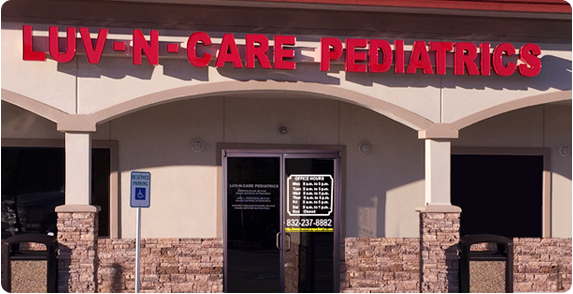| Medical Encyclopedia: Well-child visits
Definition
Childhood is a time of rapid growth and change. Pediatric well-child visits are most frequent when the child’s development is most rapid.
Each visit includes a complete physical examination. This will assess the infant or young child's growth and development and help identify problems early. Height, weight, and other important information is recorded and considered. Hearing, vision, and other tests will be a part of some visits. Such preventive care is important for raising healthy children.
Information Return to top
Well-child visits are also key times for communication. Expect to be given information about normal development, nutrition, sleep, safety, infectious diseases that are "going around," and other important topics for parents.
Make the most of these visits by writing down your most important questions and concerns to bring with you.
Special attention is paid to whether the infant has met the normal developmental milestones. The height, weight and head circumference is recorded on a graph, which the health care provider keeps with the infant's chart. You also can keep your own graphs of the height, weight, and head circumference. This can be a great start for discussion. Ask your doctor about the body mass index (BMI) curve, which is the most important tool for identifying and preventing obesity.
There are several schedules for routine well-child visits. One schedule, recommended by the American Academy of Pediatrics, is given below.
Return to top
PREVENTIVE HEALTH CARE SCHEDULE
A visit with a pediatrician before the baby is born is important for first-time parents, those with high-risk pregnancies, and any other parent who wishes to discuss common issues such as feeding, circumcision, and general questions.
After the baby is born, the next visit should be 2-3 days after bringing the baby home (for breast-fed babies) or when the baby is 2-4 days old (for all babies discharged from a hospital before 2 days old). For experienced parents, some practitioners will delay the visit until 1-2 weeks of age.
Thereafter, visits should occur at the following points:
By 1 month (although experienced parents can wait until the next time, 2 months)
2 months
4 months
6 months
9 months
1 year
15 months
18 months
2 years
3 years
4 years
5 years
6 years
8 years
10 years
Each year after that until age 21
Of course, visits and phone calls to a health care provider should be made any time a baby or child seems ill or whenever the parent is concerned about a baby's health or development.
Return to top
RELATED TOPICS
Physical examination:
Temperature measurement (see also normal body temperature)
Auscultation
Breath sounds
Heart sounds
Percussion
Palpation
Infantile reflexes
Standard ophthalmic exam
Neonatal jaundice
Immunizations:
Immunizations - general overview
Babies and shots
Diphtheria immunization (vaccine)
Pertussis immunization (vaccine)
Tetanus immunization (vaccine)
DPT immunization (vaccine)
Hib immunization (vaccine)
Polio immunization (vaccine)
Hepatitis B immunization (vaccine)
MMR immunization (vaccine)
Influenza immunization (vaccine)
Pneumococcal immunization (vaccine)
Hepatitis A immunization (vaccine)
Varicella (chickenpox) immunization (vaccine)
Meningcococcal (meningitis) immunization (vaccine)
Human papilloma virus (vaccine)
Return to top
Nutrition:
Diet and intellectual development
Appropriate diet for age
Infant formulas
Breast feeding
Balanced diet
Fluoride in diet
Obesity in children
Growth and development:
Infant - newborn development
Toddler development
Preschooler development
School age child development
Adolescent development
Developmental milestones
Developmental milestones record - 2 months
Developmental milestones record - 4 months
Developmental milestones record - 6 months
Developmental milestones record - 9 months
Developmental milestones record - 12 months
Developmental milestones record - 18 months
Developmental milestones record - 2 years
Developmental milestones record - 3 years
Developmental milestones record - 4 years
Developmental milestones record - 5 years
Preparing a child for an office visit is much like test and procedure preparation.
See:Infant test/procedure preparation
Toddler test/procedure preparation
Preschooler test/procedure preparation
School age test/procedure preparation
Update Date: 7/26/2007
Updated by: Daniel Rauch, M.D., FAAP., Director, Pediatric Hospitalist Program, New York University School of Medicine, New York, NY. Review provided by VeriMed Healthcare Network.
A.D.A.M., Inc. is accredited by URAC, also known as the American Accreditation HealthCare Commission (www.urac.org). URAC's accreditation program is the first of its kind, requiring compliance with 53 standards of quality and accountability, verified by independent audit. A.D.A.M. is among the first to achieve this important distinction for online health information and services. Learn more about A.D.A.M.'s editorial process. A.D.A.M. is also a founding member of Hi-Ethics (www.hiethics.com) and subscribes to the principles of the Health on the Net Foundation (www.hon.ch).
The information provided herein should not be used during any medical emergency or for the diagnosis or treatment of any medical condition. A licensed physician should be consulted for diagnosis and treatment of any and all medical conditions. Call 911 for all medical emergencies. Links to other sites are provided for information only -- they do not constitute endorsements of those other sites. Copyright 1997-2008, A.D.A.M., Inc. Any duplication or distribution of the information contained herein is strictly prohibited. Return to top |









